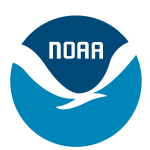- Domeniu: Government
- Number of terms: 30456
- Number of blossaries: 0
- Company Profile:
NOAA Coral Reef Conservation Program, National Oceanic and Atmospheric Administration, U.S. Department of Commerce
A genetic feature or characteristic that may be passed down from one generation to the next.
Industry:Natural environment
A mineral species of calcium carbonate (caco3) with a crystal structure different from the other two forms of caco3 (vaterite and calcite). It is precipitated from ocean surface waters mainly by organisms (e.g., coral) that use it to make their shells and skeletons.
Industry:Natural environment
A respiratory structure or external gills, usually located on the dorsal side toward the posterior of dorid nudibranchs. This plume surrounds the anus and in some species, it may be retracted. The branchial plume is the major respiratory structure in nudibranchs.
Industry:Natural environment
An action that occurs either completely or not at all, such as the generation of an action potential by a neuron, or the contraction of a muscle cell.
Industry:Natural environment
Competition between two organisms (or species) in which one is much more adversely affected than the other.
Industry:Natural environment
Pertains to serially repeated structures which can be counted, e.g. Scales, vertebrae, fin rays, fin spines, other spines, myomeres, photophores, scutes, laterel line pores, etc.
Industry:Natural environment
The ability of certain animals to navigate by instinct to specific sites. Depending upon the species, the cues involved may be related to star patterns, sun angle, polarized light, chemical scents or tastes, or the Earth's magnetic field.
Industry:Natural environment
The free swimming stage of some corals, jellyfish, anemones, hydroids and comb jellies, shaped like a bell or umbrella and swims by pulsations of the body.
Industry:Natural environment
